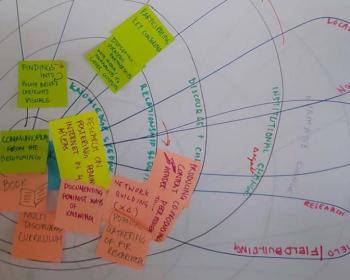firn
Digital technologies are becoming ever more a part of our world, and we need to (re)claim an internet that integrates and respects our different realities, contexts, ages, disabilities, sexualities, expressions, and socioeconomic, political, ethnic, religious and gender identities.
This edition is a collection of essays and reflexive writings on feminist ways of knowing, and practices and priorities in feminist internet research. The focus is particularly on how there are added dimensions to all these questions when doing research on the internet and digital technology.
The Feminist Internet Research Domains of Change diagram created and explored through the FIRN inception meeting is designed to provide a framework for research project planning that can identify and prioritise specific fields where impact can be made; identify strategies towards that impact by specifying which domain of change the strategy aims to engage with; and to plot pathways for strategi...
This practices document builds on feminist politics and values, and existing or conventional ethical requirements and frameworks for researchers. It draws from decades of feminist work in relation to ethics, care, intersectionality, positionality and standpoint, and also more recently on work in relation to internet-related and data-driven research.
Pages

Association for Progressive Communications (APC) 2022
Unless otherwise stated, content on the APC website is licensed under Creative Commons Attribution 4.0 International (CC BY 4.0)






